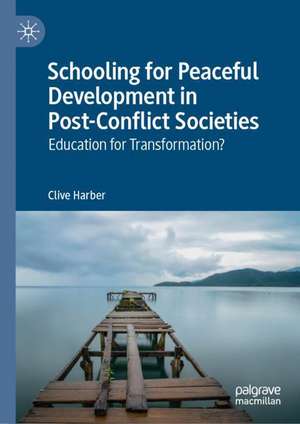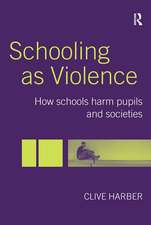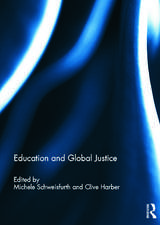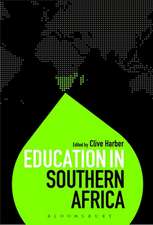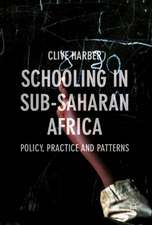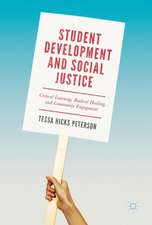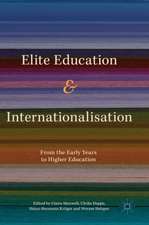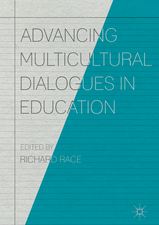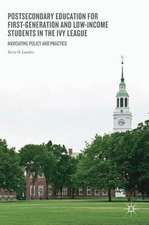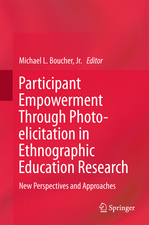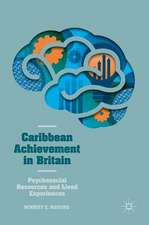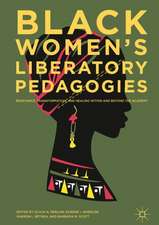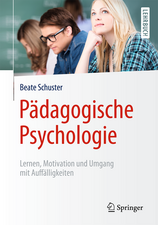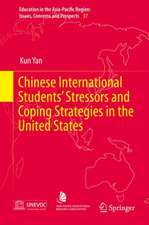Schooling for Peaceful Development in Post-Conflict Societies: Education for Transformation?
Autor Clive Harberen Limba Engleză Hardback – 13 mai 2019
Preț: 588.18 lei
Preț vechi: 691.97 lei
-15% Nou
Puncte Express: 882
Preț estimativ în valută:
112.55€ • 117.82$ • 93.13£
112.55€ • 117.82$ • 93.13£
Carte tipărită la comandă
Livrare economică 07-21 aprilie
Preluare comenzi: 021 569.72.76
Specificații
ISBN-13: 9783030176884
ISBN-10: 3030176886
Pagini: 276
Ilustrații: XIV, 306 p. 1 illus.
Dimensiuni: 148 x 210 mm
Greutate: 0.54 kg
Ediția:1st ed. 2019
Editura: Springer International Publishing
Colecția Palgrave Macmillan
Locul publicării:Cham, Switzerland
ISBN-10: 3030176886
Pagini: 276
Ilustrații: XIV, 306 p. 1 illus.
Dimensiuni: 148 x 210 mm
Greutate: 0.54 kg
Ediția:1st ed. 2019
Editura: Springer International Publishing
Colecția Palgrave Macmillan
Locul publicării:Cham, Switzerland
Cuprins
Preface.- Chapter 1. Violence, Violent Conflict and Schooling.- Chapter 2. Education as potentially preventative of violent conflict.- Chapter 3. How might schooling be transformed to contribute to peace?.- Chapter 4. A (partial) post-conflict educational success story? Colombia.- Chapter 5. Evidence on schools and peacebuilding in post-conflict developing societies school governance, management and ethos.- Chapter 6. Evidence on curriculum - Peace Education in Africa.- Chapter 7. Evidence on curriculum - Peace Education in Asia (and the Middle East).- Chapter 8. Evidence on curriculum - history and religious education.- Chapter 9. Evidence on curriculum - citizenship education and classroom teaching methods.- Chapter 10. Evidence from further post-conflict countries.- Chapter 11. Explaining the failure of education as a vehicle for peaceful transformation - and why is the myth perpetuated?
Notă biografică
Clive Harber is Emeritus Professor of International Education at the University of Birmingham, UK. His research interests include education for peace and democracy on the one hand, and education for violence and authoritarianism on the other.
Caracteristici
Questions if formal education can in fact affect peacebuilding in post-conflict societies Debunks the myth of 'building back better' Explains why formal education in post-conflict developing societies is so impervious to radical change
